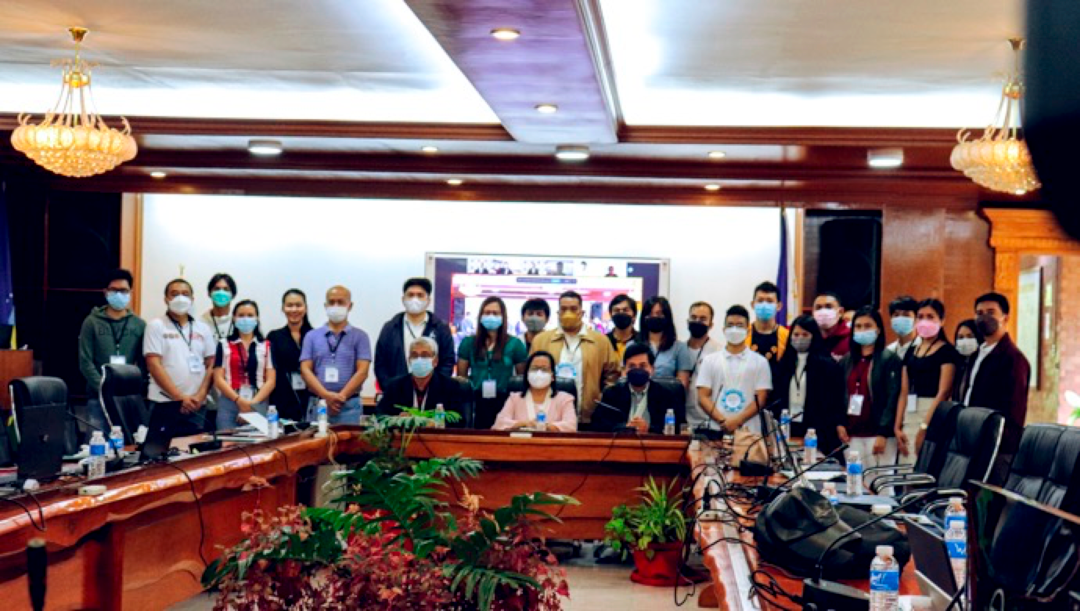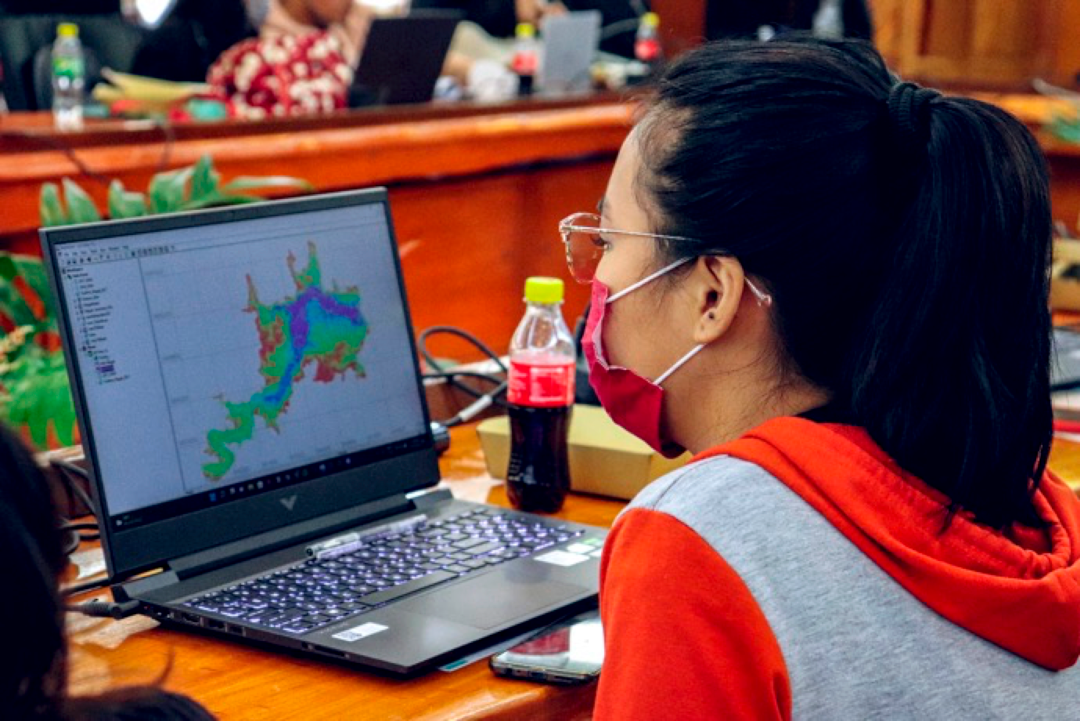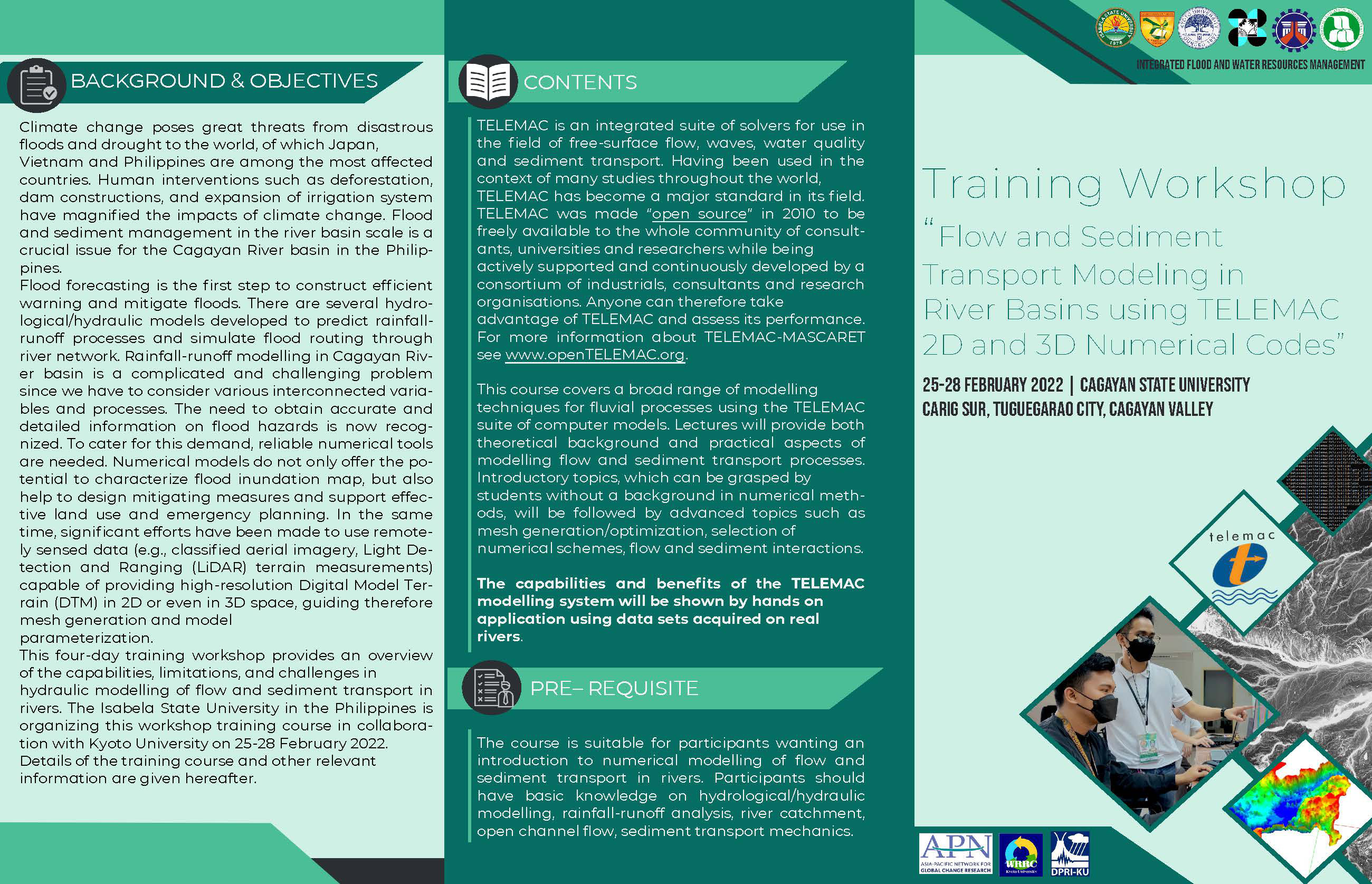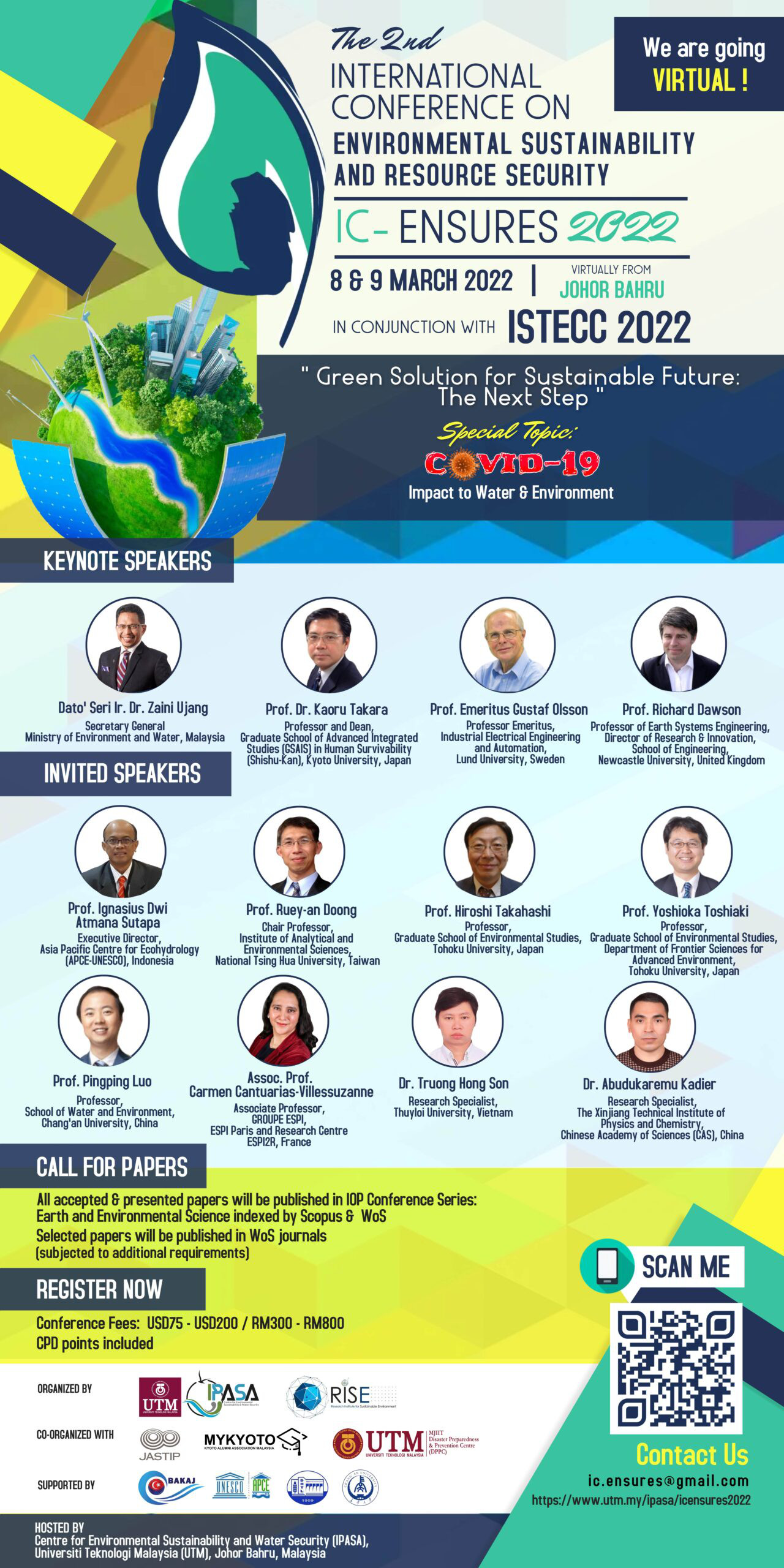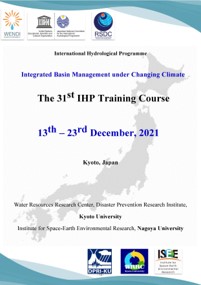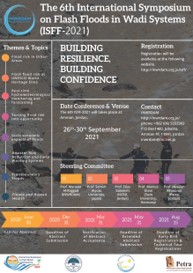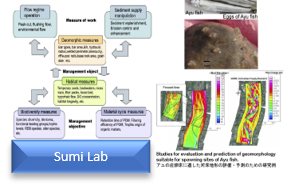Training
1. Online Training Program – UNESCO-IHP at DPRI, Kyoto University
In December 2020, UNESCO-IHP Training was organized to train the project team from Philippines and Vietnam on climate change data analysis and hydrological modelling integrating with various types of satellite data information.
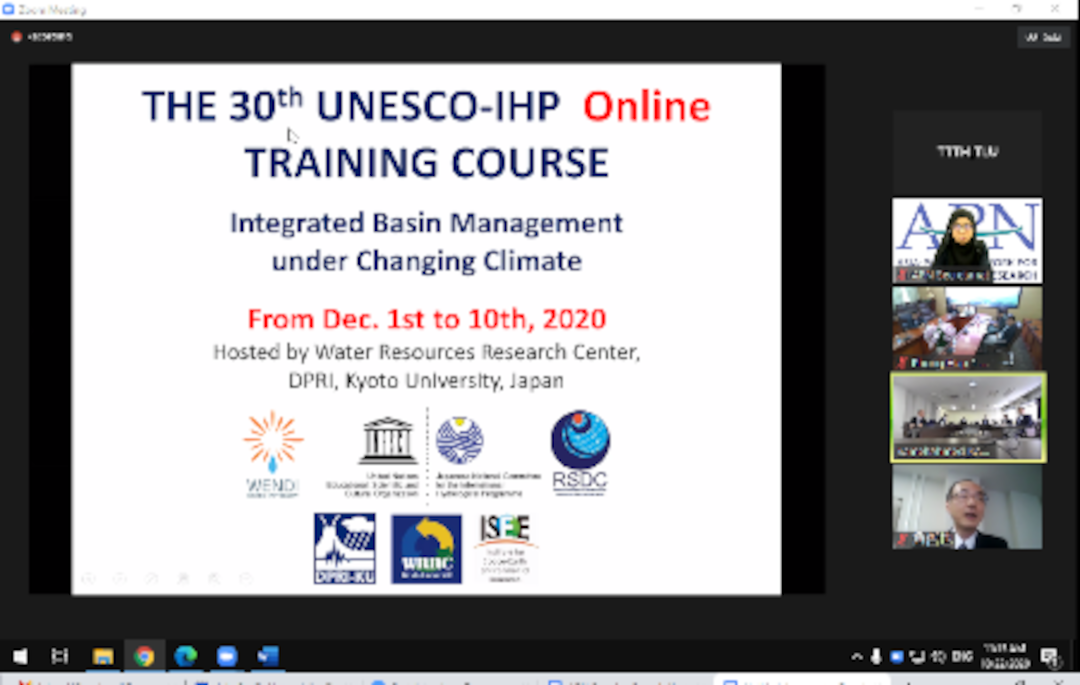


2. UNESCO-ISI Online Training Workshop on Sediment Transport Measurement and Monitoring
The UNESCO-ISI Online Training Workshop on Sediment Transport Measurement and Monitoring took place on July 5-9, 2021, focuses on "Water security: responses to local, regional, and global challenges," and addresses the wide-ranging environmental, social, and economic effects of erosion, sediment transport, and sedimentation processes. This addressed the following topics:
- Standard measurement and monitoring techniques used to collect data on water discharge and sediment loads for rivers and reservoirs.
- Recent advances in sediment transport measurement and monitoring: online monitoring of suspended sediment concentrations in rivers.
- Sediment measurement and monitoring methods for mountain streams.
- Measuring erosion and sediment yields on slopes and in small catchments for soil and water conservation; and
- Application of sediment data in controlling sediment-related ecological problems.
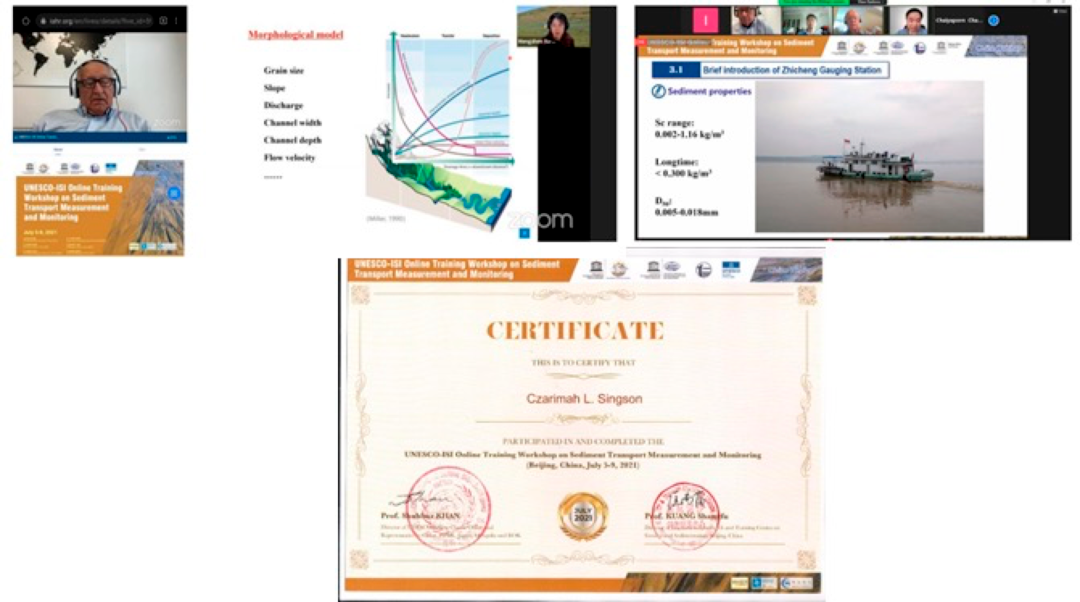
Screenshots from the lecture and the certificate given by UNESCO.
3. Training Workshop on “Flow and Sediment Transport Modelling in River Basins using TELEMAC 2D and 3D Numerical, 25-28 February 2022
A four-day online training course on “Flow and Sediment Transport Modelling in River Basins using TELEMAC 2D and 3D Numerical Codes” is being organized by Isabela State University in collaboration with Kyoto University under a capacity building programme for their working early career scientist/engineers/students from different regional centers and university from Japan and Philippines, supported by Asia Pacific Network (APN).
This four-day training workshop provides an overview of the capabilities, limitations, and challenges in hydraulic modelling of flow and sediment transport in rivers. This course covers a broad range of modelling techniques for fluvial processes using the TELEMAC suite of computer models. Lectures provided both theoretical background and practical aspects of modelling flow and sediment transport processes, with hands on application using data sets acquired on real rivers.
This course was attended by more than 40 participants from collaborative institutes (viz. Kyoto University, Isabela State University, IFWaRM, Cagayan State University, Department of Science and Technology, National Irrigation Administration), from Japan and the Philippines.
